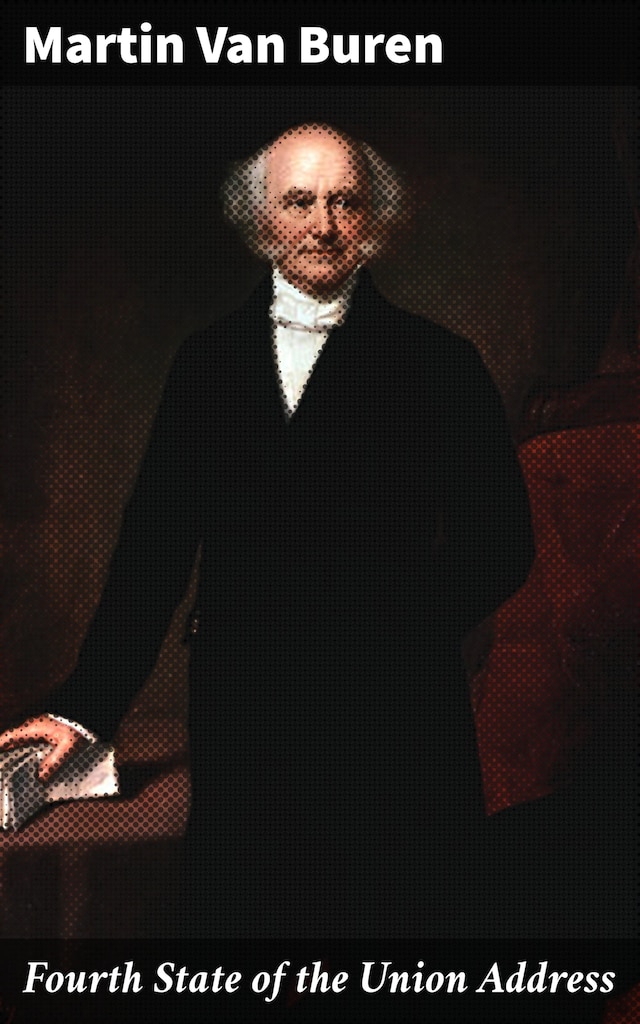
Fourth State of the Union Address
A Presidential Address on American Politics and Governance in the 19th Century
Description of book
In his Fourth State of the Union Address, delivered in 1838, Martin Van Buren articulates the pivotal challenges facing the young American republic. This address employs a formal yet accessible literary style, characterized by clarity and persuasive rhetoric, designed to engage both Congress and the American populace. Van Buren adeptly navigates pressing issues such as economic stability, territorial expansion, and the critical moral implications of slavery, projecting a vision for a unified nation that embraces democratic ideals while confronting the realities of a rapidly evolving society. His insights reflect the political landscape of the time, marked by tension between federal authority and states'Äô rights, as well as the push for westward expansion fueled by Manifest Destiny. Martin Van Buren, the eighth President of the United States and a founding figure of the Democratic Party, was deeply influenced by the political upheavals of his era, including the War of 1812 and the emergence of a two-party system. His extensive political career, serving as Secretary of State and Vice President prior to his presidency, provided him with a profound understanding of governance and the importance of public discourse. The intellectual environment of his time, particularly the debates surrounding American identity and sectionalism, undoubtedly shaped his perspectives articulated in this address. This address offers readers a compelling glimpse into the mind of a leader grappling with the complexities of nationhood. Van Buren'Äôs thoughtful examination of contemporary issues not only serves as a rich historical document but remains relevant to discussions about governance and social justice today. Recommended for scholars, political historians, and general readers alike, this address is a vital contribution to understanding the nuances of American political philosophy.
 Martin Van Buren
Martin Van Buren 32 Pages
32 Pages